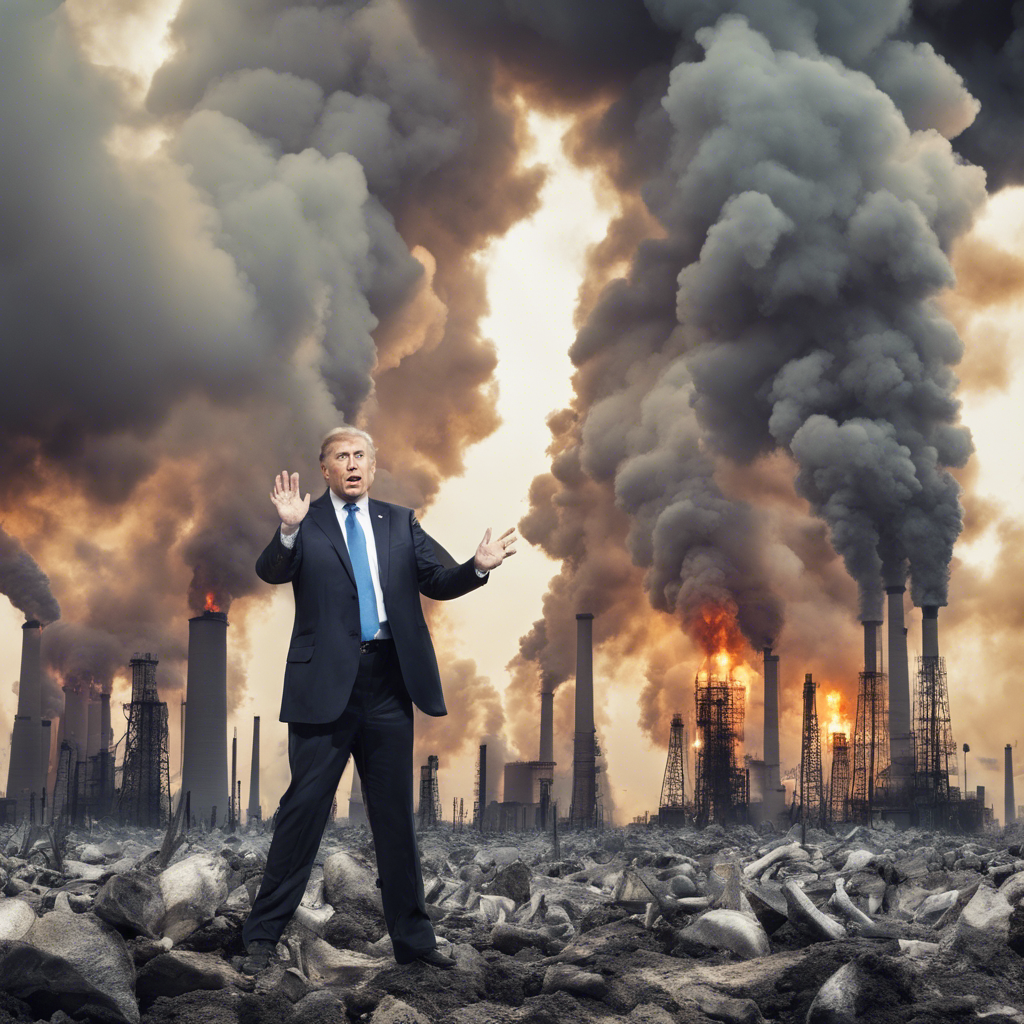COP28 President’s Controversial Stance on Phasing Out Fossil Fuels Sparks Concern

Climate scientists and advocates express alarm as the president of the COP28 climate summit, Sultan Al Jaber, claims there is “no science” supporting the need to phase out fossil fuels to limit global warming to 1.5 degrees Celsius.
The future role of fossil fuels is a contentious topic at the COP28 climate summit, with some advocating for a “phase-out” while others propose a “phase-down.” Sultan Al Jaber, the president of the summit, recently made remarks dismissing the necessity of phasing out fossil fuels, sparking concern among climate scientists and advocates. This article explores the controversy surrounding Al Jaber’s comments and the implications for global climate action.
Al Jaber’s Controversial Remarks
During the She Changes Climate panel event, Al Jaber responded to a question about phasing out fossil fuels by stating that there is “no science” supporting the notion that it is necessary to achieve the goal of limiting global warming to 1.5 degrees Celsius. He emphasized the need for a “sober and mature conversation” and expressed his reluctance to engage in what he deemed as alarmism. However, he acknowledged that a phase-down and phase-out of fossil fuels is inevitable and called for a pragmatic approach to the transition.
Criticism from Climate Scientists and Advocates
Al Jaber’s remarks have drawn sharp criticism from climate scientists and advocates. They argue that scientific reports clearly demonstrate the urgent need to reduce fossil fuel consumption to achieve the 1.5-degree goal set by the Paris climate agreement. The Intergovernmental Panel on Climate Change (IPCC) and the International Energy Agency (IEA) have both highlighted the importance of phasing out fossil fuels to prevent catastrophic climate change. Climate researcher Ploy Achakulwisut emphasized that the report’s findings indicate that all fossil fuels must be phased out, especially if carbon capture and storage measures fail to scale.
Al Jaber’s Role and Controversy
Al Jaber’s presidency of the COP28 summit has raised eyebrows due to his dual roles as the UAE’s climate envoy and the chairman of the board of directors of the Abu Dhabi National Oil Company (ADNOC). Critics argue that his ties to the fossil fuel industry may influence his stance on phasing out fossil fuels. However, a spokesperson for the COP28 team dismissed these concerns, stating that the presidency’s agenda is clear and transparent, with a commitment to phasing down and out fossil fuels while keeping the 1.5-degree target within reach.
The Urgency of Phasing Out Fossil Fuels
Fossil fuels are the primary drivers of the climate crisis, contributing to record global heat and extreme weather events. A recent report from scientific institutions, including the UN Environment Programme, warns that fossil fuel production in 2030 is projected to exceed what is necessary to limit global warming to 1.5 degrees. This underscores the urgency of transitioning away from fossil fuels to prevent further temperature rise. While some argue that carbon capture technologies can play a role in reducing emissions, others caution that these technologies are expensive, unproven at scale, and may divert attention from necessary policy changes.
Conclusion: Al Jaber’s remarks at the COP28 climate summit have ignited a debate about the role of fossil fuels in combating climate change. Climate scientists and advocates stress the need for a phased approach to reduce fossil fuel consumption to meet the 1.5-degree target. As the summit concludes, the global stocktake will assess countries’ progress on climate action and determine the path forward. The controversy surrounding Al Jaber’s comments serves as a reminder of the challenges and complexities involved in transitioning to a sustainable, low-carbon future.





